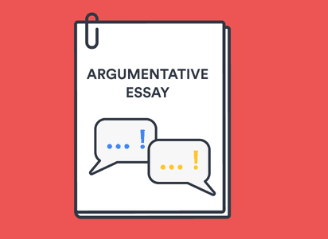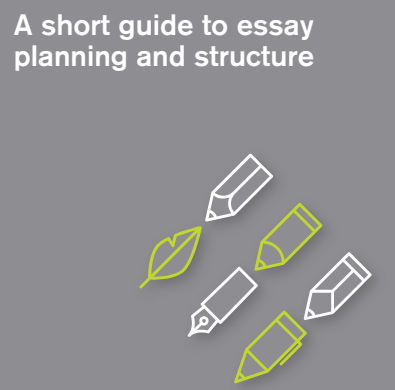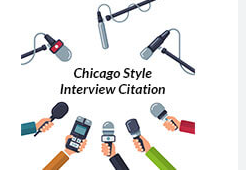How to Write a Meeting Agenda in 5 Steps

Have you ever been in a meeting that wasn’t necessary? Or perhaps you’ve witnessed a meeting go beyond schedule due to improper time management. There must be a way to stop off-track meetings, surely!
It exists. A meeting agenda is what it is called. An agenda is a plan that specifies the subject of a meeting and the timetable it will follow. An agenda keeps meetings focused, effective, and on topic.
You need to know how to write a meeting agenda whether you lead a team or a startup, are a facilitator at a nonprofit or are an executive on your corporation’s board. If you’ve ever wondered how to leave a meeting, it is for you. Continue reading our blog on how to write a meeting agenda for a step-by-step tutorial on drafting one supported with examples.
What is a meeting agenda?
What will happen during a meeting is outlined in the meeting agenda. For example, topics, objectives, schedules, speakers who have been chosen, supporting materials, and talking points could be included in a meeting agenda. Participants typically receive a meeting agenda ahead of time so they can plan.
You should brush up on how to write a meeting agenda if you’ve ever considered using asynchronous communication rather than a meeting. Agendas are important resources before, during, and after a meeting.
Before a meeting, an agenda can be used to prepare and set expectations. An agenda establishes the structure, gains time, and keeps the meeting on track. An agenda can be used to write the minutes or summarize the meeting after it has ended.
Following are a few advantages of adopting a meeting agenda:
- First, it clarifies the meeting’s goal.
- It aids in keeping you on course.
- It outlines obligations.
- You can effectively manage your time thanks to its framework.
- It guarantees that crucial subjects are covered.
- Making one makes expectations and duties clear.
- It cuts down on wasted time.
- Participants are more ready if the agenda is sent in advance.
While some experts advocate adopting agendas at all meetings, others only advise doing so for formal gatherings. Nevertheless, a meeting agenda is useful if you want to save time, keep on schedule, or accomplish a certain goal.
What items ought to be on a meeting agenda?
The aim of the meeting should be made very clear in the agenda. The agendas for certain meetings may be more thorough than others. For instance, not all meetings require allotted time for subjects or supplementary materials. However, it is simpler to stay on topic if there is a detailed agenda.
A great agenda for a meeting should include the following:
- The gathering’s topic
- Achieving objectives
- List of subjects
- Time allotments for each topic, as estimated
- Supplementary documents
- Time for an open dialogue
- One final summary
How to write a meeting agenda in 5 easy steps?
An effective agenda will take into account everyone in attendance, the objectives you hope to accomplish, and the time given for the meeting. Here are five steps on how to write a meeting agenda for a productive meeting.
1. Specify a single theme
Think about the goals of the meeting for a moment before you start to write the agenda. What are your objectives? What is the meeting’s theme? Define the meeting’s type.
Setting a topic and describing the type of meeting will assist attendees in preparing by determining the focus. Your objectives should state what you hope to achieve throughout the meeting.
How to write a meeting agenda in different formats? Here are a few typical meeting formats:
- Team meeting: Meeting with the team to discuss the project’s progress, work out any problems, and set crucial deadlines.
- Board meeting: A board meeting is a formal forum for discussing company issues.
- Executive session: An executive session is a meeting where needs for board meetings are clarified.
- Project kickoff meeting: Presentation of the new project’s goals, deliverables, and schedule during the project kickoff meeting.
- Brainstorming meeting: Meeting for idea-sharing and brainstorming.
- Feedback meeting: Meeting for constructive comments with a schedule.
- Agile meeting: A concentrated meeting for sprint reviews, project overviews, and feedback debriefs is known as an agile meeting.
- Scrum meeting: Scrum meetings are held in a scrum manner and include sprint planning, stand-ups, product backlog refinement, and sprint reviews.
- Retrospective meeting: A post-project feedback meeting is known as a retrospective.
- Onboarding meeting: A gathering for new hire orientation is known as an onboarding meeting.
- Committee meeting: Committee meetings are subgroups within organizations or teams that focus on particular tasks or problems.
2. Select topics
Ask your coworkers, fellow board members, committee members, and any other significant stakeholders if they have any topics they would like to bring up during the meeting. How to write a meeting agenda without any bias? You can write a meeting agenda by allowing everyone to speak so that nobody shouts. Then, list the subjects you need to cover during your meeting using the data you collected from your stakeholders, goal-setting, and meeting type.
Make sure the topics are relevant to the meeting’s purpose and format and your desired outcomes. Think carefully about how many subjects you can cover in the meeting’s allotted time. Only include a little content to speak on!
3. Assign leaders and time constraints to each topic.
Setting time restrictions for each topic you want to cover will help you stay on topic. In addition, the meeting organizer should choose a leader for each topic if they do not intend to moderate the discussion.
The subject leader runs the meeting throughout their topic, presents any necessary documents or slides, and ensures the topic stays within the agenda’s time constraints. It is helpful to remind topic leaders to bring their relevant documentation on the meeting day if you are in charge of running it.
4. Considering the required paperwork
Make a list of all meeting materials that are required. For example, presentation slides, statistics, project specifics, test results, wireframes, prototypes, attendance logs, or previous meeting minutes may be included.
Make sure to inform them and include it on the agenda if another member of your team needs to bring these documents to the meeting.
5. Allow time for discussion and a summary
How to write a meeting agenda without any errors? First, you must schedule time for a quick summary and discussion after the agenda to make sure everything runs smoothly. People occasionally require time for questions at the end of a meeting with a timetable. It also doesn’t hurt to review what was said in the meeting again if you were working toward a particular objective.
You may not need much time for this if you’re hosting a weekly meeting. Five minutes are frequently adequate for assessment after a meeting. However, you should leave ten to twenty minutes at the end of your meeting if it’s a monthly meeting or if it’s about fresh material.
Meeting agenda FAQs
What is a meeting agenda and how to write a meeting agenda?
What will happen during a meeting is outlined in the agenda. The following should be included when you are considering how to write a meeting agenda:
- Topics
- Goals
- A timetable
- Identified speakers
- Supplementary records
- Discussion points
How to write a meeting agenda, including essential items?
The following should be on a meeting agenda:
- The discussion topic GoalsList of subjectsTime allotments for each topic, as estimatedSupplementary recordsTime for an open dialogueOne final summary
When to use a meeting agenda?
Every meeting—or at the very least official ones—should have an agenda. A meeting agenda is useful if you want to save time, be on the right track, or achieve a certain goal.
Total Assignment Help
Incase, you are looking for an opportunity to work from home and earn big money. TotalAssignmenthelp Affiliate program is the best choice for you.
Do visit :https://www.totalassignment.com/affiliate-program for more details
Total Assignment help is an assignment help Online service available in 9 countries. Our local operations span across Australia, US, UK, South east Asia and the Middle East. With extensive experience in academic writing, Total assignment help has a strong track record delivering quality writing at a nominal price that meet the unique needs of students in our local markets.
We have specialized network of highly trained writers, who can provide best possible assignment help solution for all your needs. Next time you are looking for assignment help, make sure to give us a try.
Looking for Assignment Help from Top Experts ?
Get the best Assignment Help from leading experts from the field of academics with assured onetime, 100% plagiarism free and top Quality delivery.



